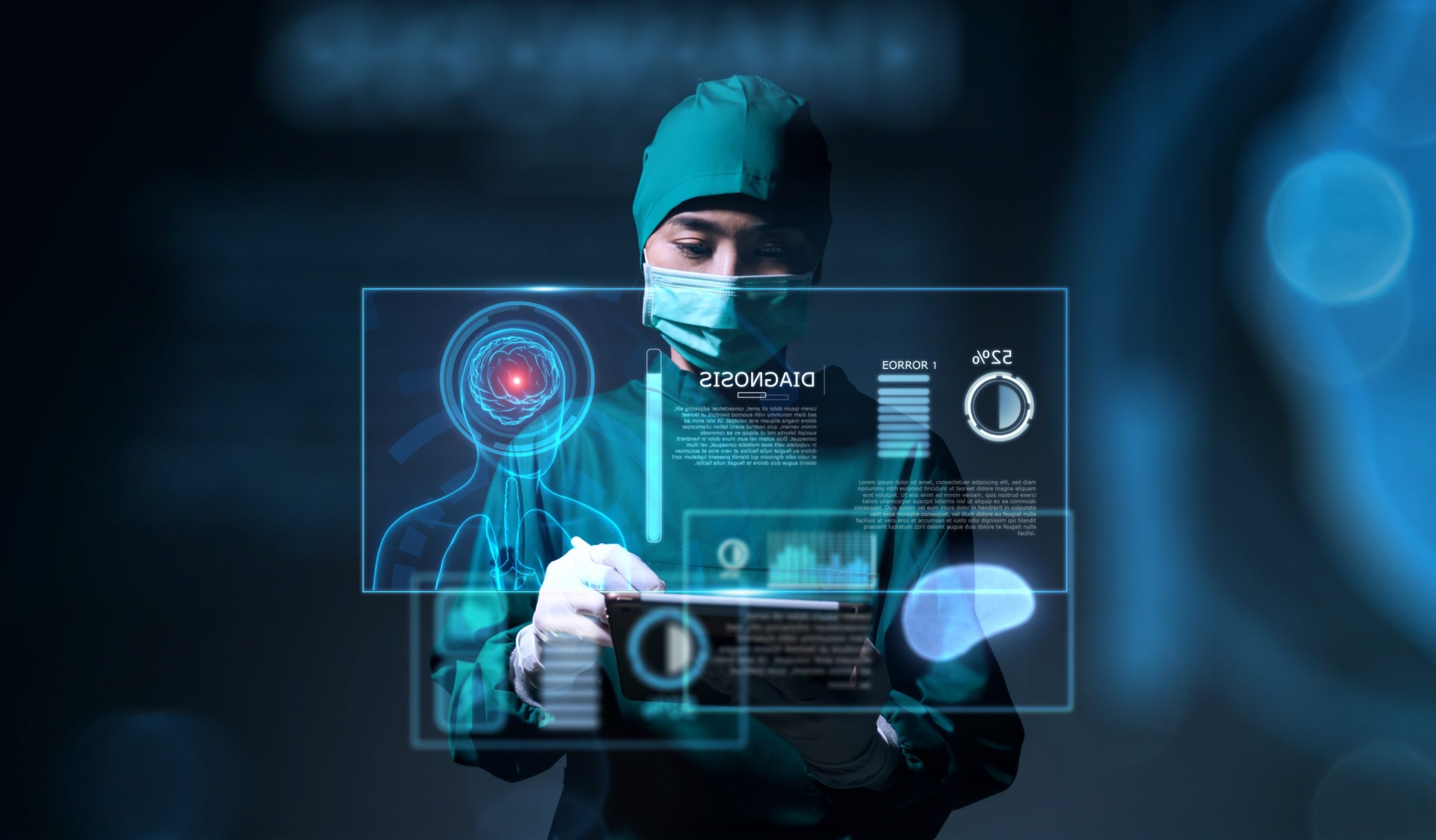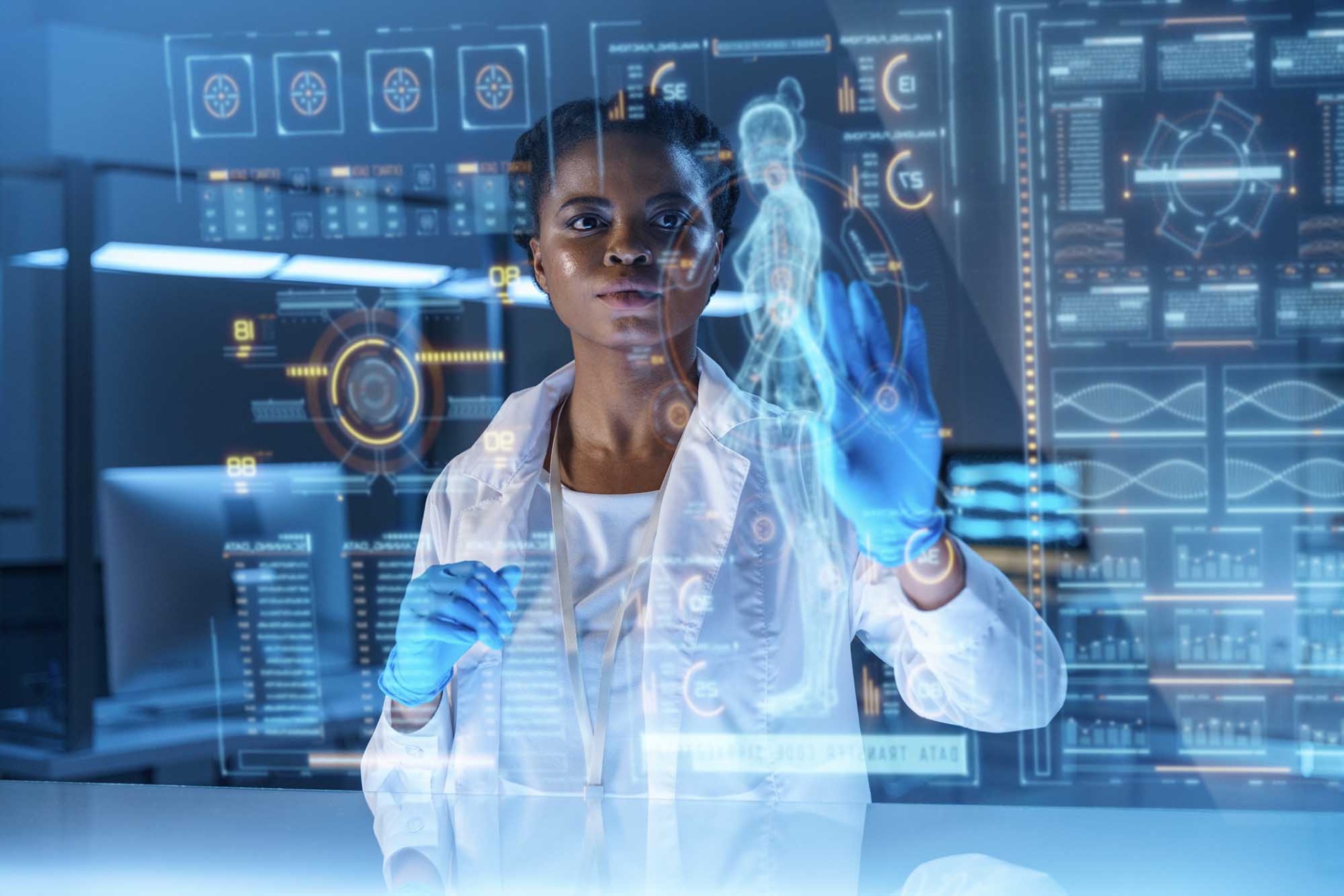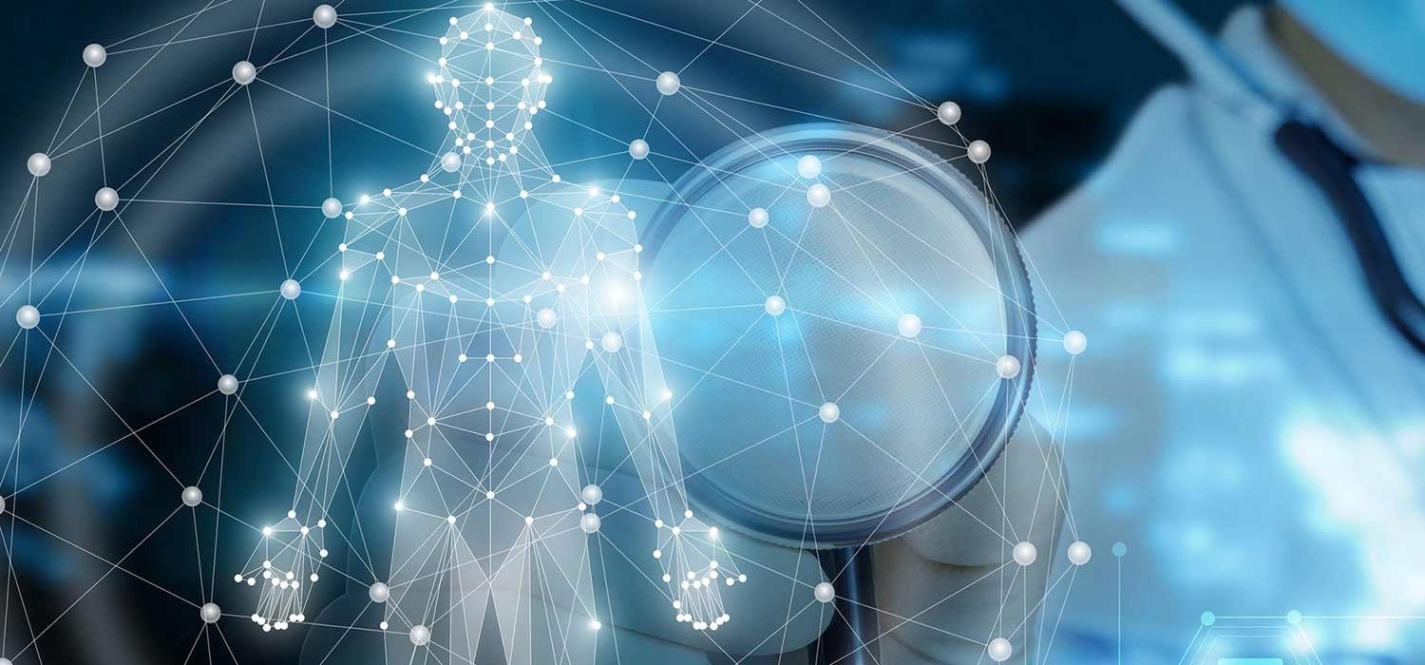Unlocking The Potential: How Artificial Intelligence Is Revolutionizing Healthcare
The Future is Here: AI Transforms Healthcare
In today’s fast-paced world, technology is constantly evolving and pushing boundaries that were once thought to be impossible. One such technological advancement that is revolutionizing the healthcare industry is Artificial intelligence (AI). AI has the potential to transform the way we approach healthcare, from diagnosing diseases to developing personalized treatment plans. The future is here, and AI is paving the way for a new era in healthcare.

Image Source: wazoku.com
One of the most significant ways AI is transforming healthcare is through its ability to analyze vast amounts of data quickly and accurately. With the help of AI-powered algorithms, healthcare providers can now process complex medical data and identify patterns that may not be visible to the human eye. This has the potential to revolutionize the way we diagnose and treat diseases, leading to more accurate and timely diagnoses.
AI is also breaking down barriers in healthcare by improving accessibility and affordability. With the help of AI-powered telemedicine platforms, patients can now consult with healthcare providers remotely, reducing the need for in-person visits and making healthcare more accessible to those in remote or underserved areas. This not only saves time and money but also improves patient outcomes by providing timely access to healthcare services.

Image Source: cmu.edu
Furthermore, AI is transforming treatment in healthcare by personalizing care plans based on individual patient data. By analyzing a patient’s genetic makeup, medical history, and lifestyle factors, AI can help healthcare providers develop personalized treatment plans that are tailored to the specific needs of each patient. This personalized approach to healthcare has the potential to improve patient outcomes and reduce the risk of adverse reactions to treatments.
AI is also playing a crucial role in research and development in the healthcare industry. By analyzing vast amounts of research data, AI can help researchers identify new drug targets, develop more effective treatments, and improve the efficiency of clinical trials. This has the potential to accelerate the pace of medical innovation and bring new treatments to market faster, ultimately saving lives and improving the quality of care for patients.

Image Source: squarespace-cdn.com
In addition to improving patient care, AI is also revolutionizing healthcare management and operations. AI-powered systems can help healthcare providers optimize workflows, streamline administrative tasks, and improve the overall efficiency of healthcare delivery. This not only saves time and resources but also allows healthcare providers to focus on what matters most – providing high-quality care to patients.
Overall, AI is unlocking the potential of healthcare by revolutionizing the way we approach patient care, research, and operations. The future is here, and AI is transforming healthcare in ways we never thought possible. As we continue to explore the possibilities of artificial intelligence in healthcare, the potential for innovation and improvement is truly limitless. With AI leading the way, the future of healthcare looks brighter than ever before.
Breaking Barriers: AI Innovations Save Lives
In today’s fast-paced world, technological advancements have revolutionized every aspect of our lives, including healthcare. One of the most groundbreaking innovations in recent years is the use of Artificial intelligence (AI) to save lives and break barriers in the medical field.
AI has the potential to transform healthcare by providing solutions that were once deemed impossible. From early disease detection to personalized treatment plans, AI innovations are reshaping the way we approach healthcare.
One of the key ways AI is saving lives is through early disease detection. With the help of machine learning algorithms, AI can analyze vast amounts of data to identify patterns and predict potential health risks. This allows healthcare providers to intervene early and prevent diseases from progressing, ultimately saving lives.
Moreover, AI innovations are breaking barriers in the field of medical imaging. By utilizing deep learning algorithms, AI can analyze medical images such as X-rays, MRIs, and CT scans with incredible accuracy. This not only speeds up the diagnosis process but also ensures that no abnormalities are missed, leading to more effective treatment plans.
In addition to early disease detection and medical imaging, AI is also revolutionizing personalized medicine. By analyzing a patient’s genetic makeup, lifestyle factors, and medical history, AI can create tailored treatment plans that are specific to each individual. This personalized approach maximizes the effectiveness of treatments and minimizes the risk of adverse reactions, ultimately saving more lives.
Furthermore, AI innovations are also improving patient outcomes through remote monitoring and telemedicine. With the help of wearable devices and mobile apps, AI can track a patient’s health in real-time and alert healthcare providers of any potential issues. This allows for early intervention and prevents medical emergencies, ultimately saving lives and improving overall patient care.
Overall, AI innovations are breaking barriers in healthcare and saving lives in ways we never thought possible. From early disease detection to personalized treatment plans, AI is revolutionizing the way we approach healthcare and unlocking its full potential to improve patient outcomes.
In conclusion, AI innovations are not only transforming healthcare but also saving lives by breaking barriers and providing solutions that were once deemed impossible. As we continue to harness the power of AI in healthcare, the possibilities are endless, and the impact on patient care will continue to grow exponentially. So let’s embrace these innovations and work towards a future where AI continues to revolutionize healthcare and save even more lives.
Transforming Treatment: AI’s Impact on Medicine
In recent years, Artificial intelligence (AI) has been making waves in the healthcare industry, revolutionizing the way medical professionals diagnose and treat patients. From predictive analytics to personalized medicine, AI has the potential to transform treatment in ways we never thought possible.
One of the most significant impacts of AI on medicine is its ability to analyze vast amounts of data quickly and accurately. This allows healthcare providers to make more informed decisions when it comes to diagnosing and treating patients. AI algorithms can sift through patient records, lab results, and even genetic information to identify patterns and predict outcomes. This not only saves time but also improves the accuracy of diagnoses, leading to better patient outcomes.
Another way AI is transforming treatment in medicine is through the development of personalized medicine. By analyzing a patient’s genetic makeup and other factors, AI can help healthcare providers tailor treatment plans to individual patients. This precision medicine approach ensures that patients receive the most effective and least invasive treatments, reducing the risk of adverse reactions and improving overall health outcomes.
AI is also being used to improve the efficiency of clinical trials and drug development. By analyzing data from previous trials and identifying potential candidates for new treatments, AI can help researchers identify promising new therapies more quickly. This not only accelerates the drug development process but also reduces costs, making potentially life-saving treatments more accessible to patients.
In addition to improving treatment outcomes, AI is also revolutionizing the way medical professionals interact with patients. Virtual health assistants powered by AI can provide patients with real-time information and support, helping them manage chronic conditions and stay on track with their treatment plans. These virtual assistants can also help healthcare providers by automating routine tasks, freeing up more time to focus on patient care.
AI is also being used to improve the accuracy of medical imaging and diagnostics. Machine learning algorithms can analyze medical images, such as X-rays and MRIs, to detect abnormalities that may be missed by human eyes. This not only improves the accuracy of diagnoses but also helps healthcare providers catch potential health issues earlier, leading to better treatment outcomes.
Overall, AI’s impact on medicine is vast and far-reaching. From personalized medicine to improved diagnostics, AI has the potential to revolutionize the way we approach healthcare. By harnessing the power of artificial intelligence, medical professionals can provide more accurate diagnoses, tailor treatment plans to individual patients, and improve overall health outcomes. The future of medicine is bright, thanks to the transformative power of AI.
Unlocking Potential: The Power of Artificial intelligence
In today’s fast-paced world, technology is constantly evolving and reshaping the way we live our lives. One of the most exciting advancements in recent years is the development of artificial intelligence (AI) and its application in the field of healthcare. AI has the potential to revolutionize the way we diagnose, treat, and prevent diseases, ultimately improving the quality of healthcare for people around the world.
AI has the power to unlock the potential of healthcare in many ways. One of the key benefits of AI is its ability to analyze large amounts of data quickly and efficiently. This means that healthcare professionals can access valuable insights and information in real-time, leading to faster and more accurate diagnoses. AI can also help healthcare providers personalize treatment plans for patients based on their unique characteristics and medical history, ultimately improving outcomes and reducing the risk of complications.
Furthermore, AI has the potential to revolutionize the way we conduct medical research. By analyzing vast amounts of data from clinical trials, genetic studies, and patient records, AI can identify patterns and relationships that may have previously gone unnoticed. This can lead to the discovery of new treatments, drugs, and therapies that could save countless lives and improve the quality of care for patients.
Another exciting aspect of AI in healthcare is its potential to improve patient outcomes through predictive analytics. By analyzing a patient’s medical history, genetic profile, and lifestyle factors, AI can predict the likelihood of developing certain diseases or conditions. This information can help healthcare providers intervene early, potentially preventing the onset of diseases or managing them more effectively.
In addition to improving individual patient care, AI has the potential to transform the way healthcare systems operate. By automating routine tasks such as appointment scheduling, medical billing, and data entry, AI can free up valuable time for healthcare professionals to focus on more important aspects of patient care. This can lead to greater efficiency, reduced costs, and improved overall quality of care for patients.
One of the most exciting applications of AI in healthcare is its potential to revolutionize medical imaging. AI algorithms can analyze medical images such as X-rays, MRIs, and CT scans with incredible speed and accuracy, helping healthcare providers identify abnormalities and make more informed diagnoses. This can lead to earlier detection of diseases, more precise treatment planning, and ultimately better outcomes for patients.
Overall, the power of artificial intelligence in healthcare is truly transformative. By unlocking the potential of AI, we can improve the quality of care for patients, accelerate medical research, and revolutionize the way healthcare systems operate. As we continue to harness the power of AI in healthcare, the possibilities are endless, and the potential for positive impact is immense.
artificial intelligence in healthcare


